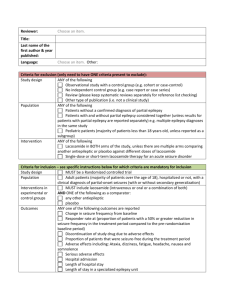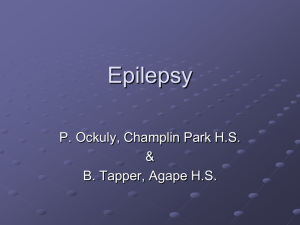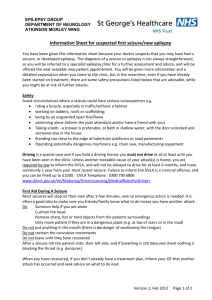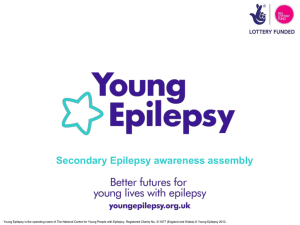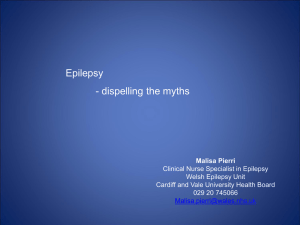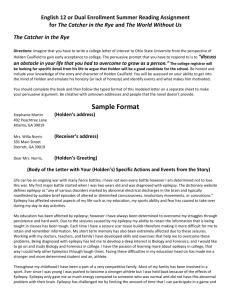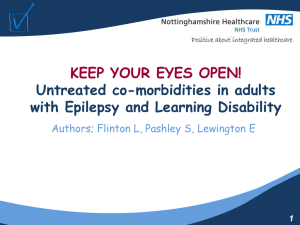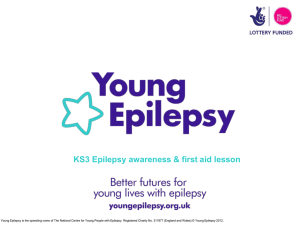Purple day presentation for High Schools
advertisement
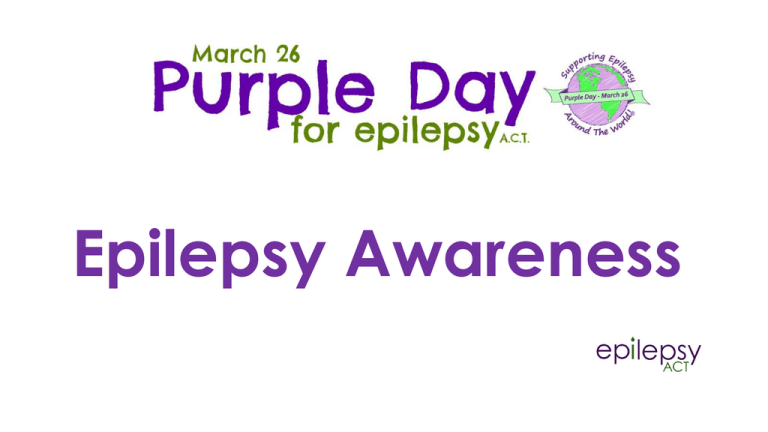
Epilepsy Awareness What is epilepsy? • World’s most serious brain disorder • A disorder of brain function that takes the form recurrent seizures • Seizures can take a wide variety of forms - Convulsing - A blank stare - Uncharacteristic behaviour • Epilepsy is a spectrum disorder, meaning that each persons seizure is different • It is a condition that can occur at any stage of your life Some facts about epilepsy • Affects about 2 people in every 100 • More common than MS, Motor Neuron & Parkinson’s combined • Affects all ages, race, intelligence & social-economic levels • Aprox 3% to 3.5% of Australians will experience epilepsy at some point in their lives (ABS) • Most commonly affects under 5 years and over 55 years • Most people with epilepsy can go on to live happy and fulfilling lives Epilepsy is NOT … • Epilepsy is not always inherited • Epilepsy is not always caused by serious head trauma • Epilepsy is not contagious • Epilepsy is not a mental or emotional illness • Epilepsy is does not mean that a person has a intellectual disability or learning difficulties What happens during a seizure A seizure is the result of sudden, uncontrolled electrical discharge in a group of brain cells (neurons). During a seizure people may feel: • strange sensations •Uncharacteristic behaviour •Strong emotions •Impact on thought processes •Convulsions and spasms •Loss of consciousness Some people worry about having a seizure at school or work. They often worry about how their peers will react. How would you respond to someone having a seizure? What can you do? During a seizure you can: • Stay with the person • Protect them from injury (move dangerous objects out of the way) • Reassure them, make them feel safe • Learn about seizure first aid • Any doubts, call 000 What else you can do! March is Epilepsy Awareness Month! Help Epilepsy ACT celebrate Purple Day on 26 March. Purple Day was founded by a nine year old girl in Canada called Cassidy Megan, who wanted to get people talking about epilepsy. And this year Epilepsy ACT wants your help to bring epilepsy out of the shadows. Purple Day suggestions Log onto the Epilepsy ACT website at www.epilepsyact.org.au Read the information about Purple Day Wear something purple on 26 March Host a purple themed event Hold a purple face painting party Buy or sell – ribbons, badges, pens, bracelets, wristbands, gorillas and bears are available during March


